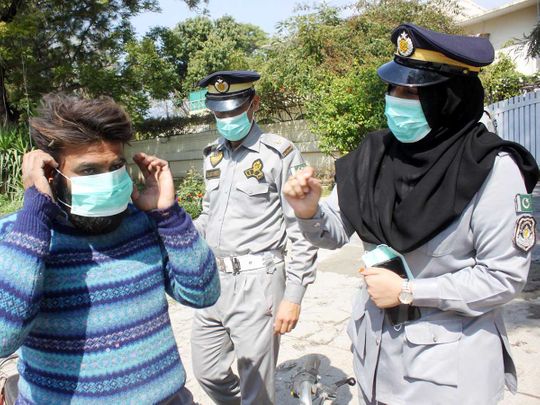
Despite getting a report that stated that around 700,000 COVID-19 cases might be present in Lahore, the Pakistan government chose to ease the lockdown restrictions. Tweeps are asking why the health authority’s suggestions were “disregarded”.
The alarming report was presented by the Secretary of Punjab Primary and Secondary Healthcare Department, Muhammad Usman to the Chief Minister of Punjab, Sardar Usman Buzdar on May 15, it was reported on Monday.
Lahore - the new epicentre of COVID-19 in Pakistan?
There is a massive contradiction between confirmed results and suspected cases in the country, according to the study, as the number in Lahore alone is 90 per cent higher than the total cases reported in the whole of Pakistan - around 76,400.
The study that has gone viral online, also stated that there is "no workplace and residential area of any town disease-free". The numbers that are exponentially higher than the cases reported in the city so far, suggest that Punjab might be the epicentre of the virus in Pakistan instead of Sindh, as currently believed.
However, many say that the government's reaction has not reflected the seriousness of the issue.
Rampant asymptomatic cases, biggest threat
The study stated that asymptomatic cases became the "main source of infection and local transmission" in the city.
As per the summary, 6 per cent of the total samples collected tested positive for COVID-19. In some towns, samples' results stated that 14.7 per cent of the samples came back with positive results.
The study added that people over 50 years of age are the ones most affected by the respiratory illness, as reflected in international literature and research.
Lockdowns eased despite health authority's warning
Advising the chief minister to immediately enforce a complete lockdown for "at least four weeks", the report, a copy of which has been obtained by Pakistani media outlets, said a smart lockdown would not work since the disease has impacted all areas of Lahore.
Regarding decisions about the easing of the lockdown in the country, the paper stated: "Any subsequent decision of lifting, relaxing or doing away with lockdown measures should be taken after reviewing the results of smart sampling conducted with regular intervals till the final tapering down of the virus," according to Pakistan daily, Dawn News.
Members of the Technical Working Group (TWG), who carried out the exercise in the city by collecting samples to gauge how fast the disease can spread in the city, have recommended imposing a complete lockdown in the city for four weeks and quarantining people aged above 50 years. The group has also advised the government to declare it essential for people to stay inside their homes and unless absolutely necessary, according to Pakistani news website geo.tv.
Government ‘disregarded’ the advice?
Since the news surfaced that the summary had been presented to Buzdar, people have been questioning why have no strict measures been implemented to curb the spread of the virus in Lahore.
Journalist Omar Quraishi, @omar_quraishi, shared pictures of pages from the report and wrote: “Government of Punjab disregarded findings of its own Technical Working Group (TWG) which found thru random testing in Lahore a COVID-19 infection rate of 6% — or 670,000 cases. Instead it went ahead and eased the lockdown - the TWG had advised a 4-week curfew to break the transmission.”
Journalist Mansoor Ali Khan, @_Mansoor_Ali, shared a graph depicting the rate of Lahore’s COVID-19 cases and wrote: “Lahore has become the hotbed for coronavirus in Punjab.”
Tweep @noorinam1 highlighted how the lockdown has been poorly implemented in the city: “Six lacs (600,000) expected coronavirus patients in Lahore? Not surprised because my own relatives there didn’t stop going to naan cholay and payay places and buying it during lockdown.”
In May, Prime Minister Imran Khan had announced plans to begin lifting Pakistan's poorly enforced lockdown, as an effort to help the economy.
Khan said the easing of restrictions, aimed at helping the country's poor, would be lifted in phases and warned people that the epidemic could get out of control if they did not take precautions. He added that restrictions could be restored if the outbreak worsens.








